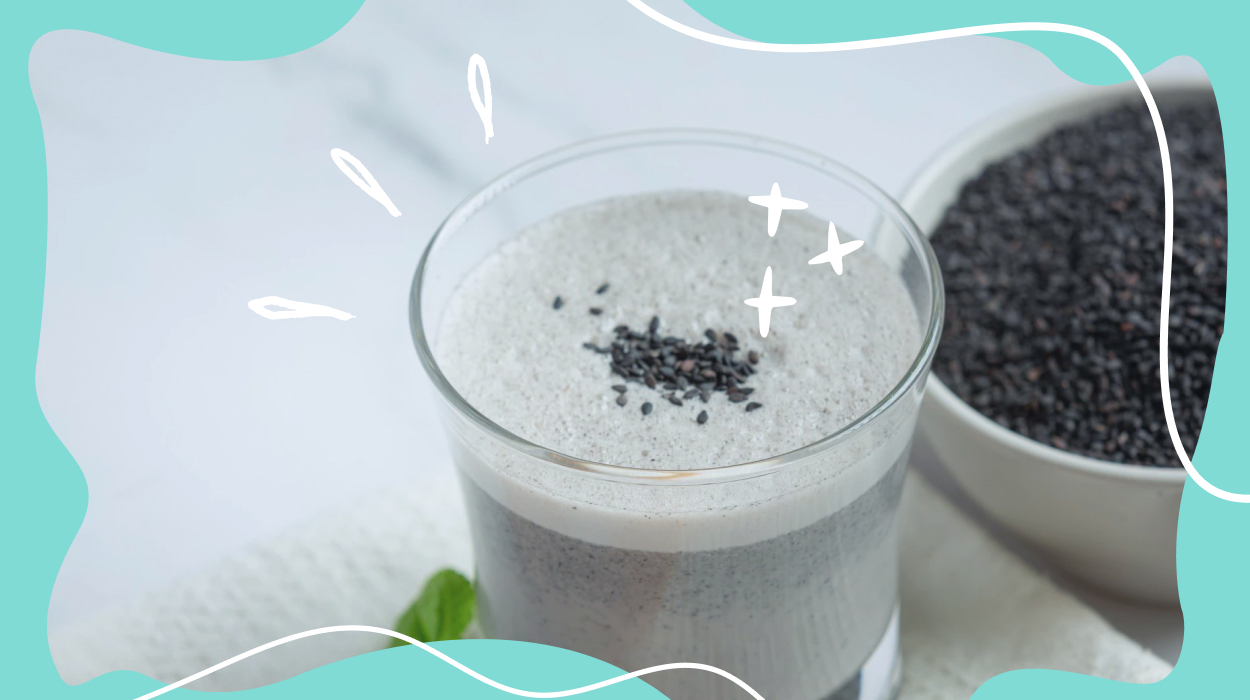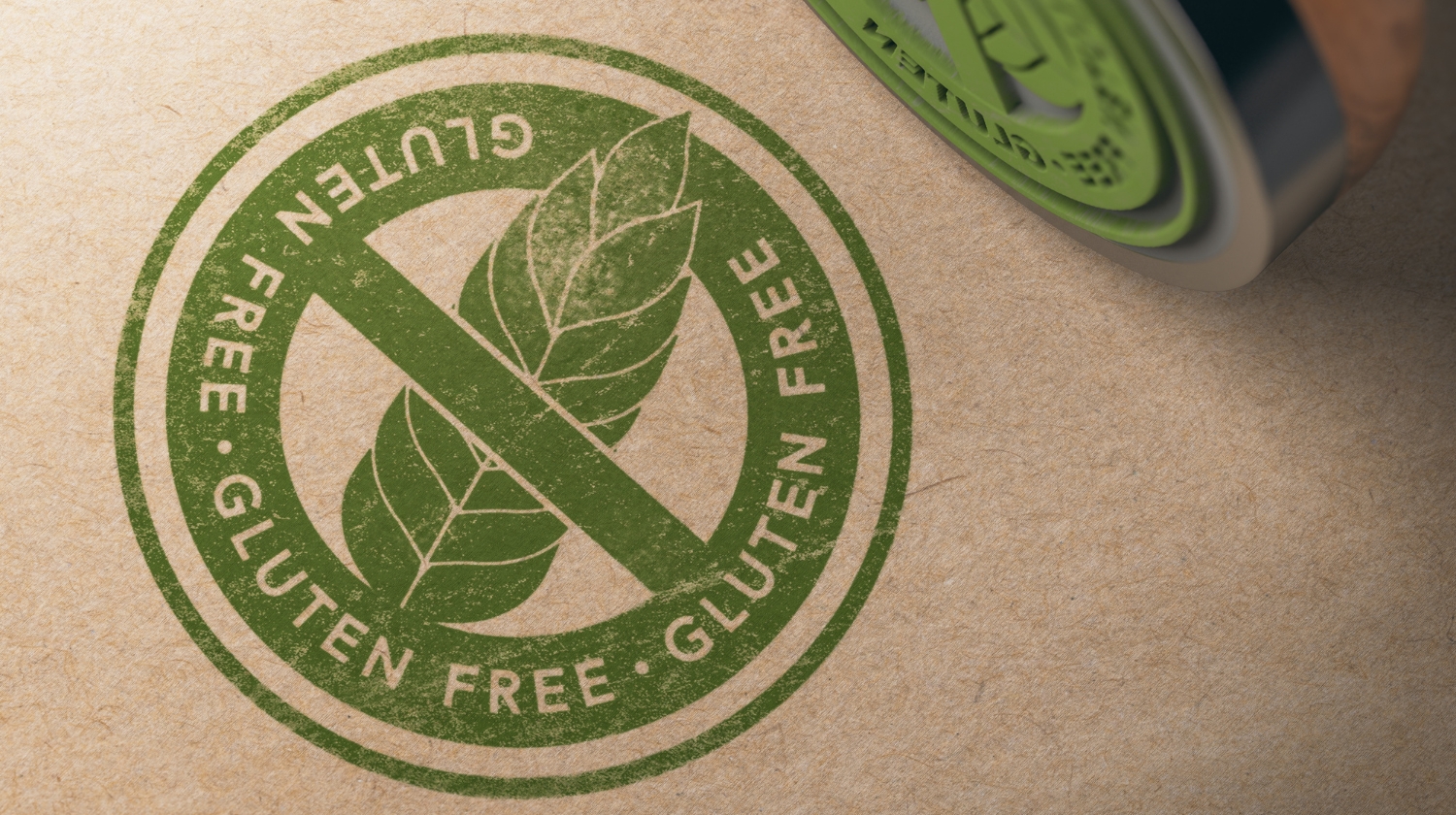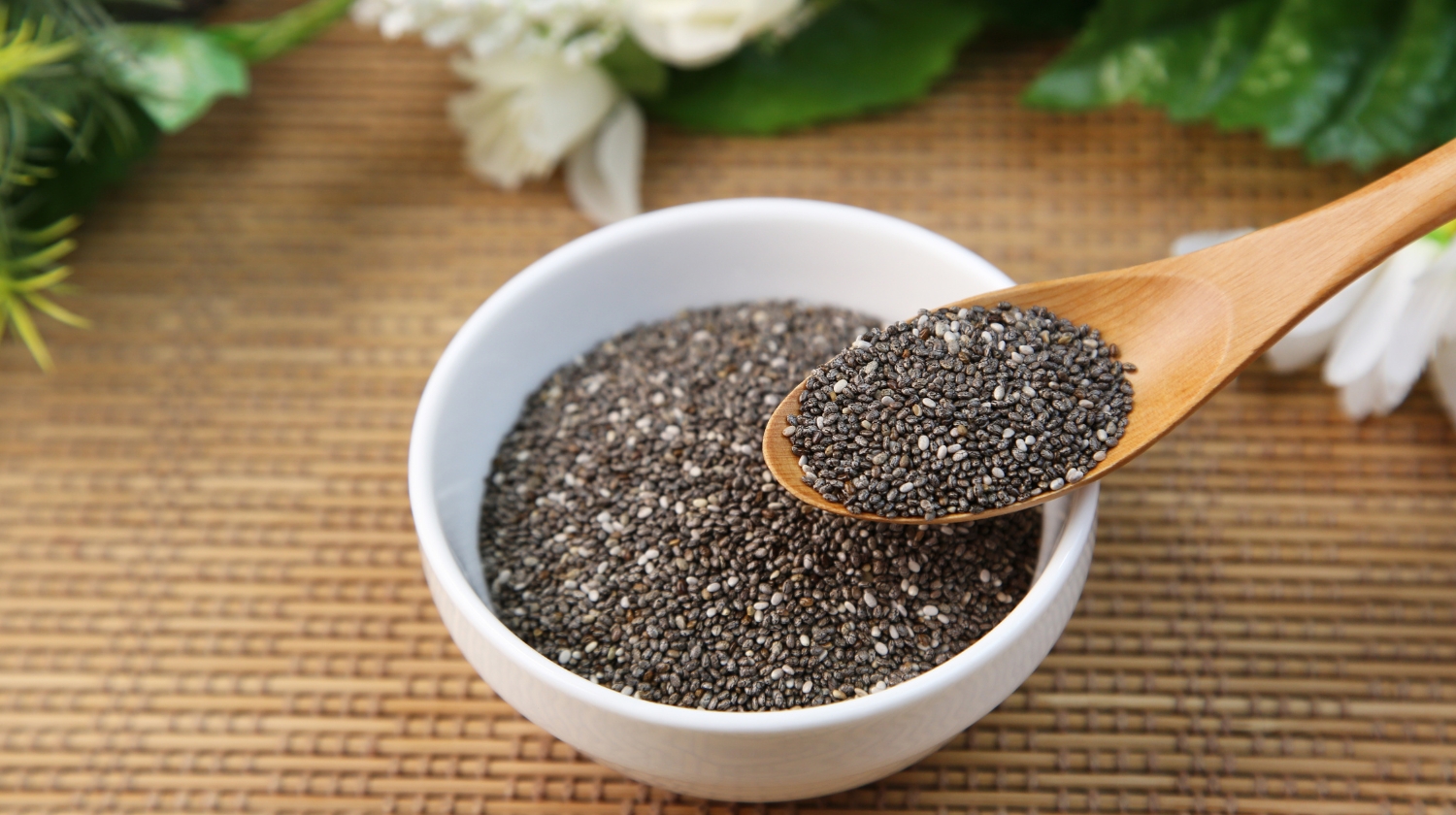 Expert's opinion
Expert's opinion
Expert's opinion
The article is a subjective view on this topic written by writers specializing in medical writing.
It may reflect on a personal journey surrounding struggles with an illness or medical condition, involve product comparisons, diet considerations, or other health-related opinions.
Although the view is entirely that of the writer, it is based on academic experiences and scientific research they have conducted; it is fact-checked by a team of degreed medical experts, and validated by sources attached to the article.
The numbers in parenthesis (1,2,3) will take you to clickable links to related scientific papers.
Are Chia Seeds Gluten Free? How to Bring Them into Your Diet?

If you recently started a gluten-free diet, you may be baffled by which foods you can and can’t eat. This guide will help make that task a bit easier by focusing on one of nature’s most versatile and nutritious gifts, the chia seed.
Embarking on a new diet can feel like a journey into uncharted territory. It can be challenging to determine what your body needs, let alone find the discipline to stick with it.
Today, we will delve into the nutritional benefits of chia seeds and how to incorporate them into a gluten-free diet.
Are Chia Seeds Gluten Free?
Yes, chia seeds are gluten-free! They are high in nutrition and a fantastic option for those seeking naturally gluten-free foods to incorporate into their diets.

What Does Gluten-Free Mean?
Gluten is a type of protein[1] found in grains such as wheat, barley, and rye. “Gluten-free” refers to any food that does not contain this protein. Though ubiquitous in processed food, most whole foods such as chia seeds are naturally gluten-free.
Understanding Gluten Intolerance, Gluten Allergy & Celiac Disease
Though many healthy people have adopted a gluten-free diet for personal reasons, it is important to remember that there is nothing toxic about gluten[2] for the average person. This protein is a problem for a small percentage of the population with very specific medical conditions.
What Is Celiac Disease?
Celiac disease is an autoimmune condition[3] in which consuming gluten generates antibodies which damage the digestive tract. Eating even a small amount of gluten will cause the small intestine to stop functioning properly and attack itself. The complications of this can be serious[4], from malnutrition to cancer.
Diagnosis[5] of celiac disease is usually made using a blood test or tissue analysis. It is important for patients with celiac disease to avoid even the smallest amount of cross-contamination.
What Is The Difference Between Gluten Intolerance & Gluten Allergy?
A wheat or gluten allergy[6] can cause a range of reactions, from hives to anaphylaxis. It is diagnosed with a skin test. Some individuals can successfully reintroduce it after allergy treatments, whereas others need to carry an EpiPen.
Gluten intolerance, or non-celiac gluten sensitivity[7] (NCGS), causes uncomfortable symptoms after consuming gluten. Gluten sensitivity comes in a range of severity and is usually associated with other conditions like irritable bowel syndrome (IBS). Some individuals with NCGS can eat small amounts of gluten, others can tolerate it with the assistance of digestive enzyme supplements[8]. But many can’t tolerate even small amounts.
Why Choose A Gluten-Free Diet?
The gluten-free diet has become popular over the past decade due to reports of health benefits. However, individuals who have experienced increased energy levels and weight loss after adopting a gluten-free diet may actually be experiencing the benefits of avoiding processed foods.
Avoiding gluten is a medical necessity for some individuals. If you think gluten is causing your health problems, it is important to talk to a healthcare provider who can help you determine how carefully you have to keep gluten out of your diet.
Health Benefits Of Chia Seeds On A Gluten-Free Diet

Hailing from Central America, the chia plant (Salvia Hispanica) is a member of the mint family. These minuscule, speckled seeds have big nutritional benefits[9]
Digestive Support & Weight Management
Chia seeds pack an impressive 40% fiber content[10] significantly increasing the fiber value of your meals. These little seeds release dietary fiber in a gel-like form, which aids digestion, manages blood sugar, and makes you feel full faster.
Antioxidants: Cellular Defense Mechanism
Chia seeds are an excellent source[11] of antioxidants like chlorogenic acid, caffeic acid, myricetin, quercetin, and kaempferol. These antioxidants support heart and liver health, protect against aging, and might guard against specific types of cancer.
Plant-Based Source Of Omega-3 Fatty Acids
Chia seeds stand out for their high content of omega-3 fatty acids, which contribute to heart health and combat inflammation[12]. A higher intake of omega-3 fatty acids is associated with reduced risk of chronic diseases and improved metabolic health.
Peptides & Amino Acids
Chia seeds contain unique proteins[13] and peptides with antioxidant, anti-inflammatory, and anti-hypertensive properties. These amino acids can enhance the management of inflammatory bowel disease, lower blood pressure, and boost energy levels. All these factors support healthy weight loss.
Vitamins & Minerals
Chia seeds are packed with B vitamins like niacin, folic acid, thiamine, and riboflavin. These nutrients[14] can elevate metabolism and facilitate the absorption of fat-soluble vitamins A, D, E, and K.
Essential minerals such as manganese, phosphorus, copper, selenium, iron, magnesium, and calcium can be found in chia seeds. These minerals are vital for numerous body functions[15], including bone health and nerve impulse transmission.
Are Chia Seeds Dairy-Free?
Yes! Chia seeds come from the chia plant and are naturally dairy-free. The protein, fat, and dense nutrition fill a lot of the nutritional niches of dairy products.
Chia seeds are also free of lectins, which many people try to avoid.
Who Should Avoid Chia Seeds?
Although generally beneficial, some of the chia seed’s side effects can cause serious health risks for individuals with certain conditions. These include:
- Individuals unaccustomed to a fiber-rich diet, as chia’s high fiber content may cause digestive discomfort.
- Individuals with a chia allergy (rare), which can trigger a range of symptoms from skin rashes to breathing difficulty.
- Individuals on blood-thinning or blood pressure medications, given chia’s high Omega-3 content (which may affect blood thickness and pressure).
- Individuals with difficulty swallowing. The chia seed’s ability to absorb water and expand can pose a choking risk to some.
To avoid these potential risks, always hydrate chia seeds before consuming and consult with a healthcare provider if you have any health concerns or adverse reactions to chia seeds.
How To Use Chia Seeds In Gluten-Free Diet
- Infuse Your Oatmeal. Kickstart your day with a hearty, nutritious breakfast by blending chia seeds into your gluten-free oats.
- Blend into Beverages. Add chia seeds to your favorite smoothie recipe, kombucha, juice, or just plain water. You can also find chia seeds as a major ingredient in powdered protein mixes (check out this Orgain protein powder review for examples).
- Bake into bread, muffins, or bars. Invigorate your gluten-free baking by adding a handful of tiny seeds to your batter or dough. Some of the best protein bars for women use chia seeds as a major source of protein.
- Egg Substitute. If you need an egg substitute in baking, create a chia gel with a ratio of 1 tablespoon chia seeds to 3 tablespoons of water. Let it rest for a few minutes, and the mixture becomes perfect for replacing eggs in pancake or waffle recipes.
- Chia Peanut Butter. Stir chia seeds into your nut butter of choice until smooth, add sweetener if desired, and use it as a spread for toast, a sandwich filling, or even a fruit or veggie dip.
- Boost Yogurt with Chia Seeds. Spruce up your plain Greek yogurt by adding a tablespoon or two of chia seeds. Pair it with pureed berries or another low-sugar fruit for a satisfying snack or dessert.
- Chia Pudding. Combine chia seeds, milk, and your preferred flavorings, allow it to sit for a few hours or overnight, and relish a creamy, satisfying chia seed pudding parfait for breakfast!
- Salads with a Chia Seed Crunch. Add texture and nutritional value to your favorite salads by sprinkling chia seeds over them.
- Nutrient-Infused Soups and Sauces. Elevate your soups and sauces by stirring in a spoonful of chia seeds or chia flour. They absorb liquid, which can thicken the dish without gluten.
Alternative Gluten-Free Seeds To Chia Seeds
Gluten-free diets tend to have limited food variety. However, seeds serve as a versatile, nutritious, plant-based, and gluten-free alternative to incorporate into your daily meals. Let’s explore a few remarkable seeds you can include in your diet for a healthy, gluten-free lifestyle.
- Flax seeds, also known as linseeds, are a great source of dietary fiber and omega-3 fatty acids. They have a unique nutty flavor that can add depth to various dishes.
- Hemp seeds have a mild, nutty flavor. They’re a valuable addition to any gluten-free diet, providing essential nutrients and easy digestibility.
- Pumpkin seeds, also known as pepitas, are delicious and packed with antioxidants, iron, zinc, magnesium, and many other nutrients.
- Sunflower seeds are high in vitamin E and selenium, making them an excellent choice for their antioxidant properties. They are also a good source of healthy fats and protein.
Sesame seeds may be tiny, but they pack a powerful nutritional punch. These seeds are a great addition to a gluten-free diet and are high in calcium, magnesium, and fiber.
Conclusion
Embracing a gluten-free lifestyle does not mean compromising on nutrition or flavor. With the addition of seeds like chia, you are able to maintain a diet that is not just free of gluten but also rich in fiber, protein, and other essential nutrients.
Chia seeds can elevate your gluten-free meals with their versatility and significant health benefits. Chia seeds are not only gluten-free but also a superfood providing a multitude of health benefits. They can be a versatile and delicious part of your gluten-free diet.
+ 15 sources
Health Canal avoids using tertiary references. We have strict sourcing guidelines and rely on peer-reviewed studies, academic researches from medical associations and institutions. To ensure the accuracy of articles in Health Canal, you can read more about the editorial process here
- Abdulbaqi Al-toma, Volta, U., Auricchio, R., Castillejo, G., Sanders, D.S., Christophe Cellier, Chris and Knut E.A. Lundin (2019). European Society for the Study of Coeliac Disease (ESsCD) guideline for coeliac disease and other gluten‐related disorders. [online] 7(5), pp.583–613. doi:https://doi.org/10.1177/2050640619844125.
- Melini, V. and Melini, F. (2019). Gluten-Free Diet: Gaps and Needs for a Healthier Diet. [online] 11(1), pp.170–170. doi:https://doi.org/10.3390/nu11010170.
- Wu, X., Qian, L., Liu, K., Wu, J. and Shan, Z.-W. (2021). Gastrointestinal microbiome and gluten in celiac disease. [online] 53(1), pp.1797–1805. doi:https://doi.org/10.1080/07853890.2021.1990392.
- Pilvi Laurikka, Kivelä, L., Kalle Kurppa and Katri Kaukinen (2022). Review article: Systemic consequences of coeliac disease. [online] 56(S1). doi:https://doi.org/10.1111/apt.16912.
- Singh, P., Singh, A.D., Ahuja, V. and Makharia, G.K. (2022). Who to screen and how to screen for celiac disease. [online] 28(32), pp.4493–4507. doi:https://doi.org/10.3748/wjg.v28.i32.4493.
- Roszkowska, A.M., Pawlicka, M., Mroczek, A., Kamil Bałabuszek and Nieradko-Iwanicka, B. (2019). Non-Celiac Gluten Sensitivity: A Review. [online] 55(6), pp.222–222. doi:https://doi.org/10.3390/medicina55060222.
- Ra Ri Cha and Hyun Jung Kim (2020). Non-celiac Gluten Sensitivity. [online] 75(1), pp.11–11. doi:https://doi.org/10.4166/kjg.2020.75.1.11.
- Wei, G., Helmerhorst, E.J., Darwish, G., Blumenkranz, G. and Schuppan, D. (2020). Gluten Degrading Enzymes for Treatment of Celiac Disease. [online] 12(7), pp.2095–2095. doi:https://doi.org/10.3390/nu12072095.
- Marcinek K;Krejpcio Z (2017). Chia seeds (Salvia hispanica): health promoting properties and therapeutic applications – a review. Roczniki Panstwowego Zakladu Higieny, [online] 68(2). Available at: https://pubmed.ncbi.nlm.nih.gov/28646829/.
- E. Reyes-Caudillo, Tecante, A. and Valdivia-López, M.A. (2008). Dietary fibre content and antioxidant activity of phenolic compounds present in Mexican chia (Salvia hispanica L.) seeds. [online] 107(2), pp.656–663. doi:https://doi.org/10.1016/j.foodchem.2007.08.062.
- Pellegrini, M., Viuda-Martos, M., Sayas-Barberá, E., Fernández-López, J. and José Ángel Pérez-Álvarez (2018). Bioaccessibility of Phenolic Compounds and Antioxidant Capacity of Chia (Salvia hispanica L.) Seeds. [online] 73(1), pp.47–53. doi:https://doi.org/10.1007/s11130-017-0649-7.
- Ullah, R., Nadeem, M., Khalique, A., Imran, M., Mehmood, S., Javid, A. and Hussain, J. (2016). Nutritional and therapeutic perspectives of Chia (Salvia hispanica L.): a review. [online] 53(4), pp.1750–1758. doi:https://doi.org/10.1007/s13197-015-1967-0.
- Olivos-Lugo, B.L., Valdivia-López, M.A. and Tecante, A. (2010). Thermal and Physicochemical Properties and Nutritional Value of the Protein Fraction of Mexican Chia Seed (Salvia hispanica L.). [online] 16(1), pp.89–96. doi:https://doi.org/10.1177/1082013209353087.
- Olivos-Lugo, B.L., Valdivia-López, M.A. and Tecante, A. (2010). Thermal and Physicochemical Properties and Nutritional Value of the Protein Fraction of Mexican Chia Seed (Salvia hispanica L.). [online] 16(1), pp.89–96. doi:https://doi.org/10.1177/1082013209353087.
- Bailey, R.L., Fulgoni, V.L., Keast, D.R. and Dwyer, J.T. (2011). Dietary supplement use is associated with higher intakes of minerals from food sources. [online] 94(5), pp.1376–1381. doi:https://doi.org/10.3945/ajcn.111.020289.



